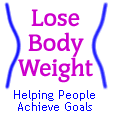
Click Your Topic
 |
 |
 |
 |
Nutritional AdviceWhat's the Best Nutrition Advice? It's following the Dietary Guidelines for Americans. These are seven guidelines for a healthful diet - advice for healthy Americans 2 years of age or more. By following the Dietary Guidelines, you can enjoy better health and reduce your chances of getting certain diseases. These Guidelines, developed jointly by USDA and HHS, are the best, most up-to-date advice from nutrition scientists and are the basis of Federal nutrition policy. The Dietary Guidelines for AmericansEat a variety of foods to get the energy, protein, vitamins, minerals, and fiber you need for good health. Balance the food you eat with physical activity - maintain or improve your weight to reduce you chances of having high blood pressure, heart disease, a stroke, certain cancers, and the most common kind of diabetes. Choose a diet with plenty of grain products, vegetables, and fruits which provide needed vitamins, minerals, fiber, and complex carbohydrates, and can help you lower your intake of fat. Choose a diet low in fat, saturated fat, and cholesterol to reduce your risk of heart attack and certain types of cancer and to help you maintain a healthy weight. Choose a diet moderate in sugars. A diet with lots of sugars has too many calories and too few nutrients for most people and can contribute to tooth decay. Choose a diet moderate in salt and sodium to help reduce your risk of high blood pressure. If you drink alcoholic beverages, do so in moderation. Alcoholic beverages supply calories, but little or no nutrients. drinking alcohol is also the cause of many health problems and accidents and can lead to addiction. Nutrition and DietTo be healthy, a person should eat a balanced diet with a variety of nutrients. Nutrients are substances in food needed for normal growth, maintenance, and repair of tissues. There are six categories of essential nutrients. They are: Water, Fats, Carbohydrates, Proteins, Vitamins, and Minerals. WaterWater is sometimes called the forgotten mineral but is vital for survival. Fifty to sixty percent of our body weight is water. A physically inactive adult living in a moderate climate should drink approximately six to ten eight-ounce glasses of water per day. Six cups of water a day is obtained from drinking water and other beverages. Four additional cups of water come from foods such as fruits, vegetables, meats, bread, and cheese. And, one cup a day comes from body metabolism or breakdown of energy nutrients. FatsAlthough most of us don't like our bodies to have "added fat," we need fat in our diets and in our bodies for health. Fats:
The suggested goal for fat intake in American diets for people over 2 years of age are that total fat should be 30 percent or less of your daily caloric intake. This goal for total fat intake applies to the diet over several days, not to a single meal. There are some basic principles for reducing fats in the diet. They include: Reducing the amount of fat consumed. CarbohydratesCarbohydrates provide energy, help regulate how the body uses fat for energy, and spares protein. Experts suggest that Americans should increase the percent of total daily intake of carbohydrates to approximately 50-60 percent. People should be particularly concerned with increasing their consumption of complex carbohydrates such as potatoes, grains, legumes, and pasta. Many countries of the world already consume as much as 80 percent of their caloric intake for carbohydrates with foods such as rice, bulgur, millet, and cassava. ProteinsThe word protein comes from the Greek word "protos" meaning first. Adequate protein is essential to good health; however, no one nutrient is more valuable or important than another. Protein is important in building, maintaining, and repairing body tissues. High quality proteins are found in most foods of animal origin. Lower quality proteins are found in foods of vegetable origin and in gelatin. You can combine the lower quality proteins in order to raise the quality of protein you are consuming. For example: using cooked dried beans with rice or bulgur, tofu with rice, or split pea soup with rye bread. Be sure that your daily intake is adequate, but not excessive. Too much protein is not useable and is stored as fat. VitaminsVitamins have no calories and are needed only in small amounts. They regulate body processes that promote growth and maintain health and life. There are fat soluble (vitamins A, D, E, and K) and water soluble (B-complex and vitamin C) vitamins. Consuming too much of a fat soluble vitamin can result in toxicity. Water soluble vitamins do not accumulate in the body. Most healthy people can get enough of the essential vitamins through a well-balanced diet and do not need supplements. If you do take supplements, limit the dosage to 100 percent of the U.S. RDA. MineralsMinerals contain no calories and are needed in small amounts. Their major functions are to:
The major minerals found in the body are: calcium, phosphorus, sodium, potassium, chloride, magnesium, and sulfur. The trace minerals are: iron, iodine, zinc, copper, manganese, fluoride, chromium, selenium, and molybdenum. As with vitamins, it is better to get minerals from foods rather than supplements. Target a healthier diet by thinking positive and acting positive! Think about the foods that you can have, rather than focusing on the foods that you can't have. A "pinch of the right" attitude puts you on the way to healthful living. |
"3 Habits to Lose Weight: Nutrition, Exercise, Lifestyle"
Information presented on Lose Body Weight website is considered public information. This website is for informational and educational purposes only. The information provided is not intended as a substitute for the care of a doctor or medical professional. If you suspect that you have a health problem, we urge you to contact your physician or local hospital for care. Weight Loss ideas are not proven.